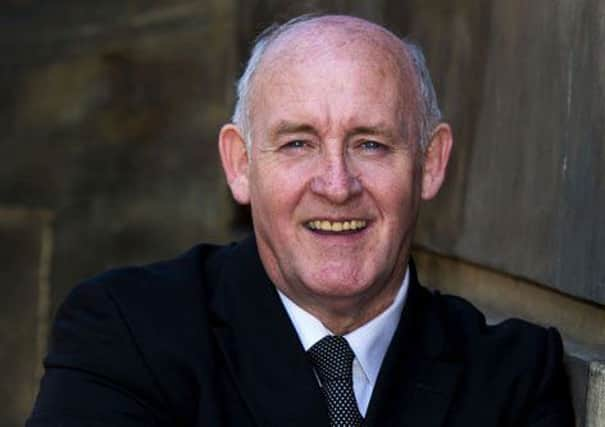Ian Welsh: We must work together to involve those who need care


One particularly welcome element for our organisation, the Health and Social Care Alliance Scotland (the ALLIANCE), was the emphasis placed on digital innovation and citizen engagement.
Scotland is fortunate to have a rich landscape of community resources to support our health. Digital solutions such as the ALISS programme, enable collaboration between health and social care agencies, communities and citizens to identify and share information about local resources which support wellbeing. Almost 10 years on from the publication of the Self Management Strategy for Scotland, it is reassuring to note the importance that the delivery plan places on enabling people to be ‘in the driving seat’ of their lives and long term conditions.
Advertisement
Hide AdAdvertisement
Hide AdThe strategy kick-started a range of ground-breaking activity across Scotland is key to ensuring our health and care system involves citizens and communities as co-producers of their health and wellbeing.
On this note, the delivery plan has a pivotal role. Supporting people to fully participate in decisions which impact on their health and wellbeing, must be a central tenet of our future approach. Achieving the plan’s ambition of redefining the relationship between practitioners and individuals based on a ‘realistic medicine’ approach will help drive a co-productive way of working, which will be further supported by the commitment to refresh the Health Literacy Plan.
This is also true of health and social care integration, where increased engagement and co-production with communities, support and services users, and stakeholder representatives on Integration Joint Boards (IJBs), is required.
We’ve seen pockets of good practice in supporting the third sector’s role and placing greater emphasis on more preventative and anticipatory activity but there remains a risk that, in a time of austerity, work to merely sustain services will “crowd out efforts to transform care”, as The King’s Fund has recently warned the NHS in England.
Working with representatives on IJBs, the newly established Our Voice programme, supported by the Scottish Health Council and the ALLIANCE, has recognised that a unified vision of public representation is required if the views of people who use support and services are to be heard. The progress of integration, and how it drives the transformational change articulated during its development, must be supported by elements of the delivery plan.
One area where further work is required is on self-directed support (SDS), which empowers people to choose how their social care is provided. Our recent research has highlighted that, while the majority of people who access social care support felt informed about SDS, none stated that they have found out about SDS through their GP or hospital and only 10 per cent used their SDS to meet health outcomes alongside social care support.
We’d like to see Health and Social Care Partnerships driving greater collaboration between health services and social care colleagues to promote integrated and preventative approaches through SDS.
In primary care, workforce challenges remain significant, but the plan sets out a helpful emphasis away from the ‘medical model’ of treatment, towards a model of care and support which recognises the social determinants of health and builds on people’s expertise in living with their conditions. The ALLIANCE is working across primary care settings to develop innovative approaches that reflect a core set of person-centred, asset-based principles with a human rights focus.
Advertisement
Hide AdAdvertisement
Hide AdThe ongoing review of targets and indicators led by Sir Harry Burns presents us with an opportunity to put these principles into practice. Any new targets shouldn’t be just modifications that lock in the current system, but rather focus thinking towards enabling the best personal and community outcomes, not system outcomes.
It’s well within the gift of health and social care professionals, those setting the strategic direction and people who use support and services and unpaid carers to come together and get to the heart of what matters to people in their lives and apply their knowledge to achieve the outcomes that are important to them. The risk of not doing so is too great.
Ian Welsh OBE is chief executive of Health and Social Care Alliance Scotland (the ALLIANCE).
JOIN THE DEBATE
www.scotsman.com